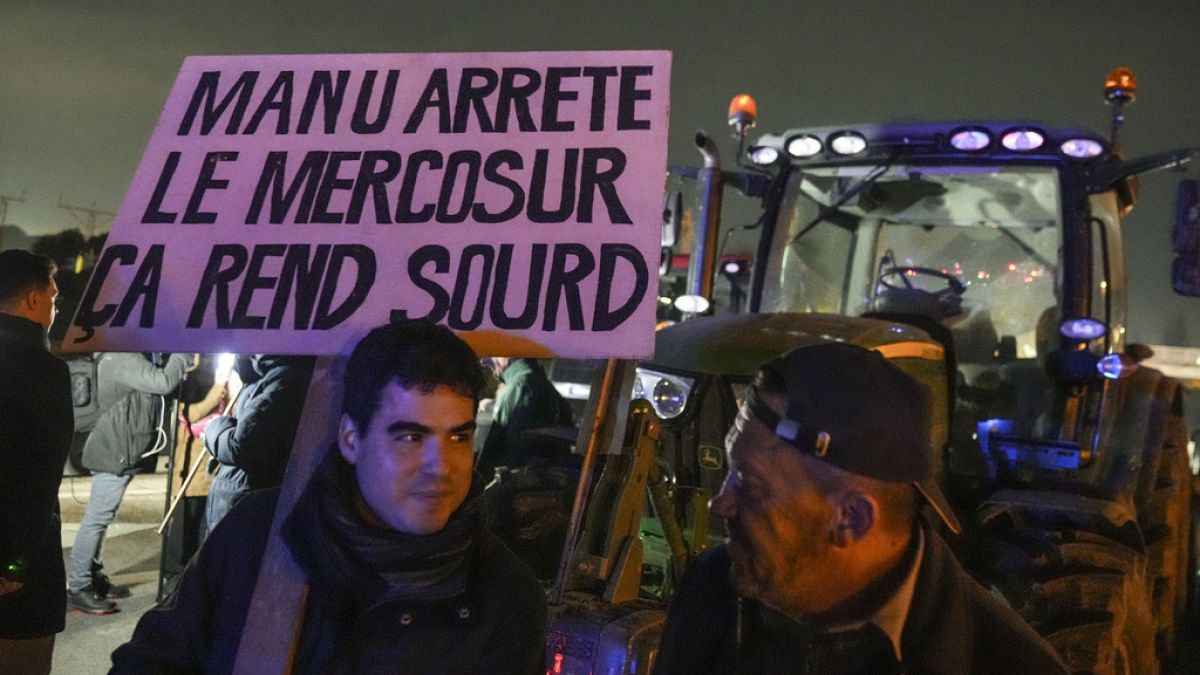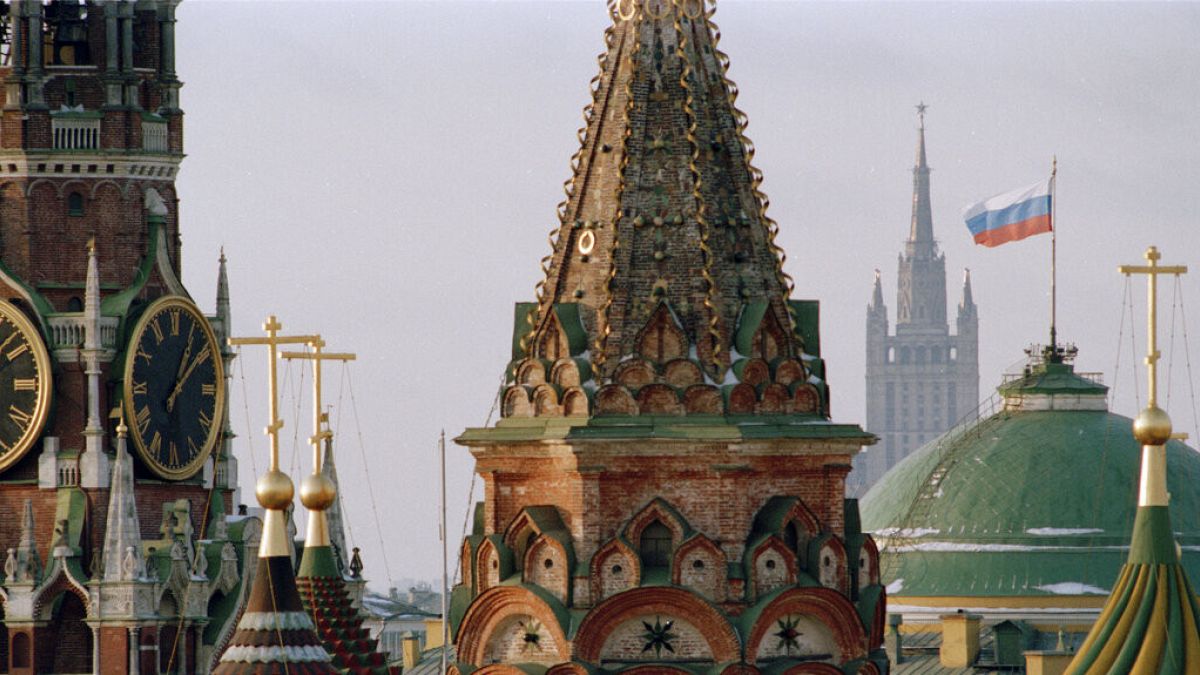For Syrians in Europe, watching the fall of al-Assad’s regime was a euphoric moment that gave way to uncertainty and anxiety over their country’s still uncertain political future.
Since 2015, nearly 4.5 million Syrians made their way to Europe, fleeing an unending civil war and a deep humanitarian crisis.
Many of them watched in disbelief over the weekend as rebels led by the Hayat Tahrir al-Sham (HTS) group moved through the country, eventually taking the capital Damascus.
Bashar al-Assad’s sudden departure to Moscow ended a decades-long dynasty characterised by brutal crackdowns and human rights abuses.
“My whole family was crying,” Zahra Alhelamy said. “My dad came running into the room shouting ‘Syria is free’ — I thought he was joking.”
Alhelamy, who is 23 years old, left Syria when she was 11. After travelling by foot to Turkey, she and her sisters, brother and parents boarded a boat to the Greek island of Lesbos, a dangerous route that has claimed the lives of thousands each year since 2015.
They stayed in Athens for two and a half years before deciding to seek asylum in Germany, first living in a refugee camp before moving to Berlin and then settling in a small town near the west German city of Hannover.
Alhelamy said when her family first arrived in Germany, she felt “hopeless”.
“I couldn’t understand a word, and we were far away from any towns or cities,” Alhelamy explained. After learning German, she trained as an assistant in a doctor’s office.
Barely a day after al-Assad fled, Germany — which has the largest number of Syrian refugees in Europe with nearly one million in the country — announced it would be temporarily suspending asylum applications along with a slew of other countries, including Sweden and Greece.
Alhelamy and her family have asylum in Germany. Returning to Syria, however, would still not necessarily be an option.
“We don’t know who’s going to be the next president, we don’t know if there will be a next president. It took us so long to come here, and I don’t have anywhere to live in Syria anymore — if I went back, what would happen?”
“I face discrimination in Germany as a Muslim woman, but I started working here, I live here, and now it’s my second home. Syria is not safe yet,” she emphasised.
‘If it’s not democratic, I can’t go back’
For Bushra Alzoubi, who lives in Paris, the decision of European countries to suspend asylum claims is a reminder of the uncertainty and instability she faced when trying to claim asylum in France.
Alzoubi, who first fled Syria to Jordan before coming to France via an academic scholarship, was first granted subsidiary protection for four years, a decision she appealed — and won.
She says the process of seeking asylum was long, complicated and, at times, “humiliating”.
“You constantly feel like you are being told you’re lying, and that you have to prove something,” Alzoubi recalled.
Those handling her claims didn’t seem to have enough knowledge of the sheer scope of the humanitarian and political crisis in Syria to hold a decision that was critical to her, she said.
Earlier this week, France’s Interior Ministry said it was working on possibly suspending asylum claims from Syrian nationals. In 2023, France registered more than 4,000 asylum requests from Syrians, according to the OFPRA refugee authority.
“What is happening now for asylum-seekers is, you’re accusing these factions of being terrorists and you’re also saying you want to send people back,” Alzoubi said. “What is your position? You have to be clear.”
HTS, who led groups of rebels into Damascus, is listed as a terrorist organisation in multiple Western countries. It currently appears on the EU’s anti-terrorism sanctions list as an affiliate of al-Qaeda.
During her time in France, Alzoubi put immense pressure on herself to learn French and integrate, ultimately gaining a Master’s in Human Rights and Humanitarian Action at Sciences Po.
“I would love with my heart to go back to Syria and work on Syria with the tools and political awareness I acquired abroad,” she said.
“But to go back, I feel I would need reassurances. Right now, no one knows what is going to happen, and no one can know what is going to happen”.
“If it’s not a democratic Syria — I can’t go back,” Alzoubi explained.
‘Another Afghanistan’
For Mohamed Khedhr, watching al-Assad flee was “like a dream”. “I never thought I would see it in my lifetime,” he told Euronews.
On Monday, however, he felt he had come back to reality, as his province of Deir ez-Zor had not been liberated yet.
The 38-year-old lives in Bavaria and fled Syria nine years ago, facing threats against his life for his work as a journalist and activist documenting evidence of human rights abuses under the regime.
“(Removing al-Assad) was one goal of so many goals,” he explained. “We had the revolution, it was not only to take al-Assad down, it was also because we had dreams. We want our rights, we want democracy, we want a colourful homeland.”
“Now, what I’m seeing is not what we dreamt about,” Khedhr lamented. “I want to think, let’s give them time but my greatest fear is seeing Syria turn into another Afghanistan.”
HTS’ leader Ahmad al-Sharaa, formerly known as Abu Mohammed al-Jolani, has sought to reassure Syrians that the group will not dominate the country and regular government services will resume.
Nevertheless, Khedhr said watching those who previously supported al-Assad rally around al-Jolani after HTS took Damascus was a worrying indication.
“We don’t want someone who idolises himself. Al-Assad went down not because of al-Jolani but because of millions of Syrians who sacrificed everything they had,” Khedhr said.
“I have belief in us Syrians, we paid the ultimate price for this freedom.”
Read the full article here














